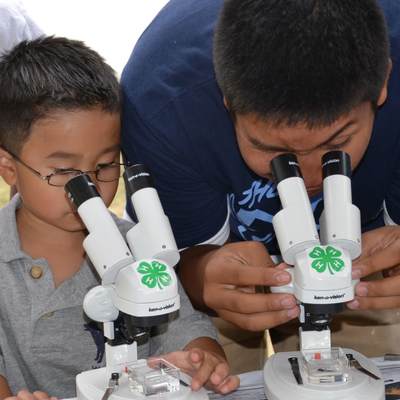Whether you're interested in pets, horse riding, animal training or raising animals for food, learn how to keep them healthy, and how healthy animals and healthy people go together.
What can you do?
In the veterinary science project, you can learn more about:
- Basic anatomy.
- Health and disease.
- Normal and abnormal conditions.
- Veterinary careers.
These are just some of the many ways you can participate in this project.
Project information
Get started with 4-H'ers in your area
- Contact your local 4-H office for more info.
Get started on your own
- Begin your project learning with the veterinary science project resource guide.
- Reflect on your project and what you've learned using 4-H record keeping.
Project opportunities near you
Get in touch with your local 4-H office to learn about veterinary science project events and activities in your area.
Interested in getting involved as a veterinary science project volunteer?
Contact your local 4-H office or learn more about volunteering in 4-H.
Fair information
What does it mean to show at the fair?
For 4-H'ers, local and state showcase events (like the Minnesota State Fair) are not just fun events. They provide youth opportunities to exhibit the knowledge and skills they've gained throughout the year– and to continue their learning.
Contact your local 4-H office for veterinary science project showcase opportunities near you.
Exhibit ideas and judging criteria
Get exhibit ideas and find out what the judge is looking for in the evaluation sheet.
Reviewed in 2023


